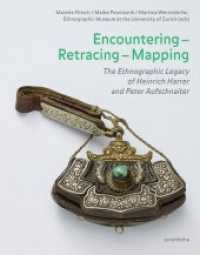Full Description
Historically, white women have had a tremendous influence on establishing the ideological, political, and cultural scaffold of American public schools. Pedagogical orientations, school policies, and classroom practices are underwritten by white, cisgender, feminine, and middle to upper class social and cultural norms. Labor trends suggest that students of color are likely to sit in front of many more white women teachers than males or non-white teachers, thus making it imperative to better understand the nature of white women's work in culturally diverse settings and the factors that most profoundly impact their effectiveness. This book examines how white women teacher dispositions (i.e. knowledge, beliefs, and skills) intersect (and/or interact) with their racial identity development, the concept of whiteness, institutional racism, and cultural perspectives of racial difference. All of which, as the authors in this volume argue, matter for nurturing a teaching practice that leads to more equitable schooling outcomes for youth of color.
While it is imperative that the field of education recruits and retains more nonwhite teachers, it is equally important to identify research-supported professional development resources for a white woman-dominated profession. To that end, the book's contributors present critical insight for creating cultural contexts for learning conducive to effective cross-cultural and cross-racial teaching. Chapters in the first section explore white women's role in establishing and maintaining school environments that cater to Eurocentric sensibilities and white racial preferences for learning and social interaction. Authors in the second section discern the implications of white images, whiteness, and white racial identity formation for preparing and professionally developing white women teachers to be effective educators. Chapters in the third section of the book emphasize the centrality of race in negotiating academic interactions that demonstrate culturally responsive teaching. Each chapter in this book is written to investigate the intersectionality of race, cultural responsive pedagogies, and teaching identities as it relate to teaching in multiethnic environments. In addition, the book offers solution-oriented practices to equip white women (and any other reader) to respond appropriately and adequately to the needs of racially diverse students in American schools.
Contents
Introduction: White Women's Work? Unpacking Its Meaning and Significance for the Contemporary Schooling of Diverse Youth; Chezare A. Warren and Stephen D. Hancock.
Part I. White Women and the Culturalization of the School Environment.
Chapter 1. Roadblock in the Mirror: Recommendations for Overcoming the Cultural Disability of Whiteness in Non-White Educational Spaces; Benterah C. Morton, Melvin J. Jackson, Marcie E. Frazier, and Kenneth J. Fasching-Varner.
Chapter 2. Naming the Unnamed: White Culture in Relief; Ali Michael, Chonika Coleman-King, Sarah Lee, Cecilia Ramirez, and Keisha Bentley-Edwards.
Chapter 3. Precarious and Undeniable Bodies: Control, Waste, and Danger in the Lives of a White Teacher and Her Students of Color; Angela C. Coffee, Erin Stutelberg, Colleen H. Clements, and Timothy J. Lensmire.
Part II. Investigating White Teacher Image and Identity.
Chapter 4. Double Image, Single Identity: Constructive Academic Relationships in Multiethnic Classrooms; Stephen D. Hancock.
Chapter 5. Doing Whiteness in the Classroom: White Liberal Pedagogy and the Impossibility of Antiracist Subjectivity; Amy Brown and Naomi Reed.
Chapter 6. Becky Please!: White Teachers and Their Issues With Whiteness; Cheryl Matias and Naomi Nishi.
Chapter 7. The Murky and Mediated Experience of White Identities in Early Childhood; Erin Miller.
Part III. Disentangling Race and Whiteness to Better Ensure Culturally Responsive Instruction.
Chapter 8. Nice White Ladies: Race, Whiteness, and the Preparation of More Culturally Responsive Teachers; Chezare A. Warren and Lloyd Matthew Talley.
Chapter 9. The Evidence of Things Not Seen? Race, Pedagogies of Discipline, and White Women Teachers; Kevin Lawrence Henry, Jr. and Chezare A. Warren.
About the Contributors.







